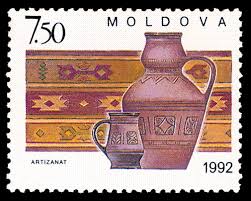
Introduction
Moldova, located at the crossroads of Eastern Europe between Romania and Ukraine, is a country of significant geopolitical importance, especially in the context of current global events. As tensions rise in Eastern Europe due to the ongoing conflict in Ukraine, Moldova finds itself navigating complex political, economic, and social landscapes. Understanding the current developments in Moldova is essential for comprehending the region’s stability and future prospects.
Politics and Governance
In recent months, Moldova has made headlines due to its urgent political reforms aimed at strengthening its democratic institutions and combating corruption. The country’s pro-European government under President Maia Sandu has intensified its efforts to align itself with the EU, which has been met with both support and opposition within its borders. Notably, Moldova’s aspirations to join the European Union have been further spurred by the EU’s promise of economic aid and development assistance, especially in light of the refugee crisis resulting from the conflict in neighboring Ukraine.
Economic Challenges
Despite these reforms, Moldova faces significant economic challenges. The ongoing conflict in Ukraine has disrupted trade routes, leading to increased energy prices and a strained economy. Inflation rates have surged, with the National Bank of Moldova reporting an increase of over 30% in consumer prices compared to last year. This economic strain has led to increased public discontent and protests, particularly as citizens express frustration over rising living costs and insufficient government support.
International Relations
Moldova’s strategic positioning has also drawn the attention of international actors. The United States and the European Union have reaffirmed their commitment to supporting Moldova’s path towards greater integration with Western institutions. Meanwhile, Russia continues to exert influence over the region, with concerns that it may attempt to destabilize the country amid Moldova’s pro-European stance. Recent military exercises conducted by Russian forces near Moldova’s borders have raised alarms about potential security threats.
Conclusion
The situation in Moldova remains fluid, with political, economic, and social factors converging to shape its future. As the government pushes for EU integration and tackles domestic challenges, the response from the international community will be critical. Analysts suggest that if Moldova can successfully implement its reform agenda and secure continued support from the West, it could emerge as a more stable and prosperous nation. However, the potential for external pressures, particularly from Russia, poses significant risks that could derail these aspirations. For citizens of Moldova and observers alike, staying informed about these developments is essential as the nation endeavours to navigate its path forward in a rapidly changing geopolitical landscape.



